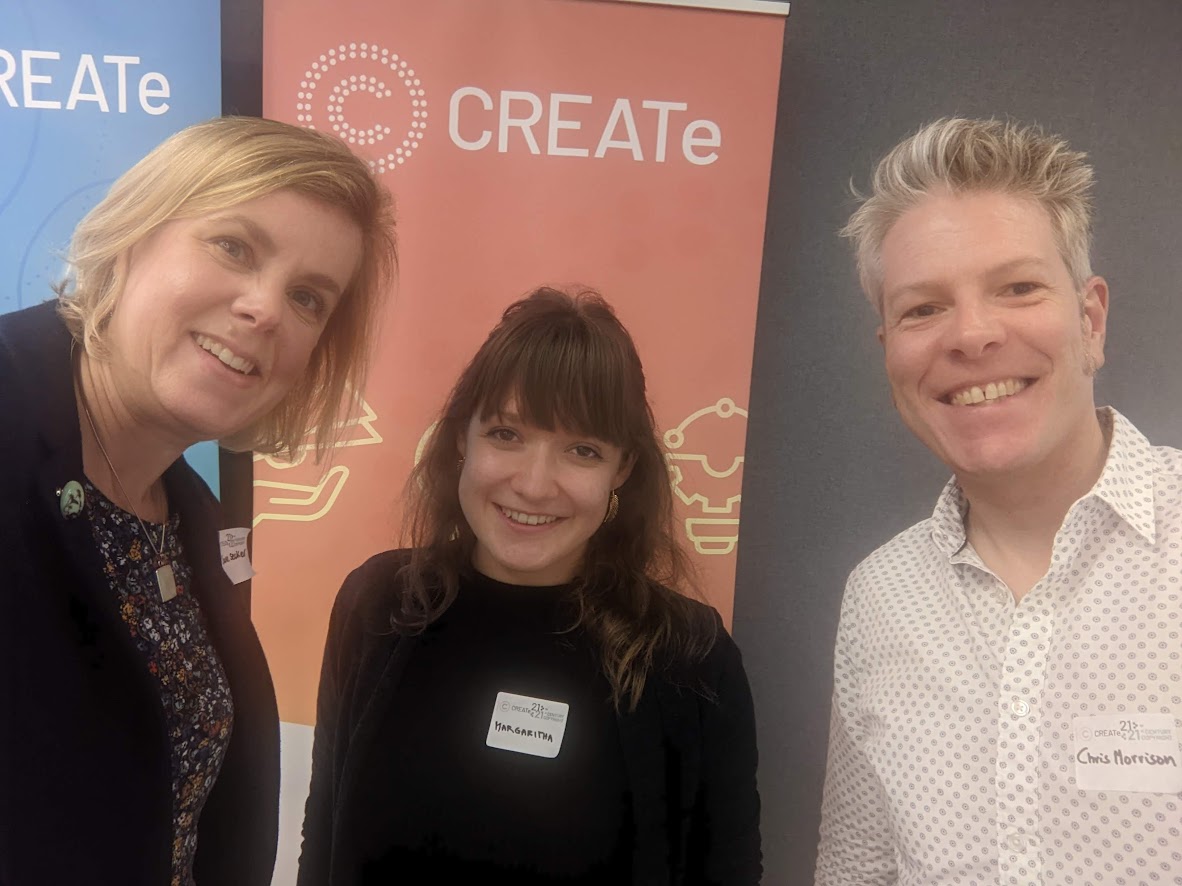Join us on Friday February 10th, 2023 at 11.00-12.00 GMT for our latest webinar when we will be joined by Margaritha Windisch.

Margaritha is a Ph.D. candidate at the Center for Law & Economics at ETH Zurich, Switzerland. She holds a Bachelor of Law from the Vienna University of Economics and Business (Business Law) and a Master of Law from the University of Lausanne (International and Comparative Law). Prior to joining ETH, Margaritha advanced digital education at Austrian schools and the University of Lausanne through various activities. Margaritha focuses particularly on empirical legal research about changes in copyright law due to technological advancements. Her current research projects are related to copyrights and Artificial Intelligence, where she explores, among others, the question of authorship for AI-generated artworks.
Many creative works have been created with increasingly sophisticated technologies and digital programs in recent years. AI also has found its way into various creative industries and processes to create works, opening up new possibilities in producing literary, musical, and artistic works as a new source for creativity and creation. For example, in the context of visual arts, some AI art generators, such as DALL-E 2 or generai, are made available to everyone online, so users can create individual artworks by entering a prompt, keywords, or picture and choosing from different art styles. Some creative outputs have been successfully commercialized, such as the Portrait of Edmund Belamy, an AI-generated art sold at a Christie’s auction for $ 432,500.
While AI can further promote creativity and innovation, its use challenges the role of creators and intellectual property, particularly their copyright and moral rights. Even though “human authorship” is the guiding principle under the Berne Convention, there is no clear definition of who can be considered the author of works generated with AI and who owns the copyright – multiple people may be eligible. Also, questions about fair use and the liability for copyright infringement in AI-generated works arise, especially in cases where the AI system has been trained on third-party content.
The legal landscape is scattered regarding whether and to what extent copyright protection should apply to works created with AI. Depending on the respective copyright law system, the approaches between countries might lead to different outcomes. Therefore, there is a need for more research and regulatory frameworks to address the legal issues surrounding AI-generated works and ensure the appropriate protection of these works.
You can join the webinar via Blackboard Collaborate, no registration required.
